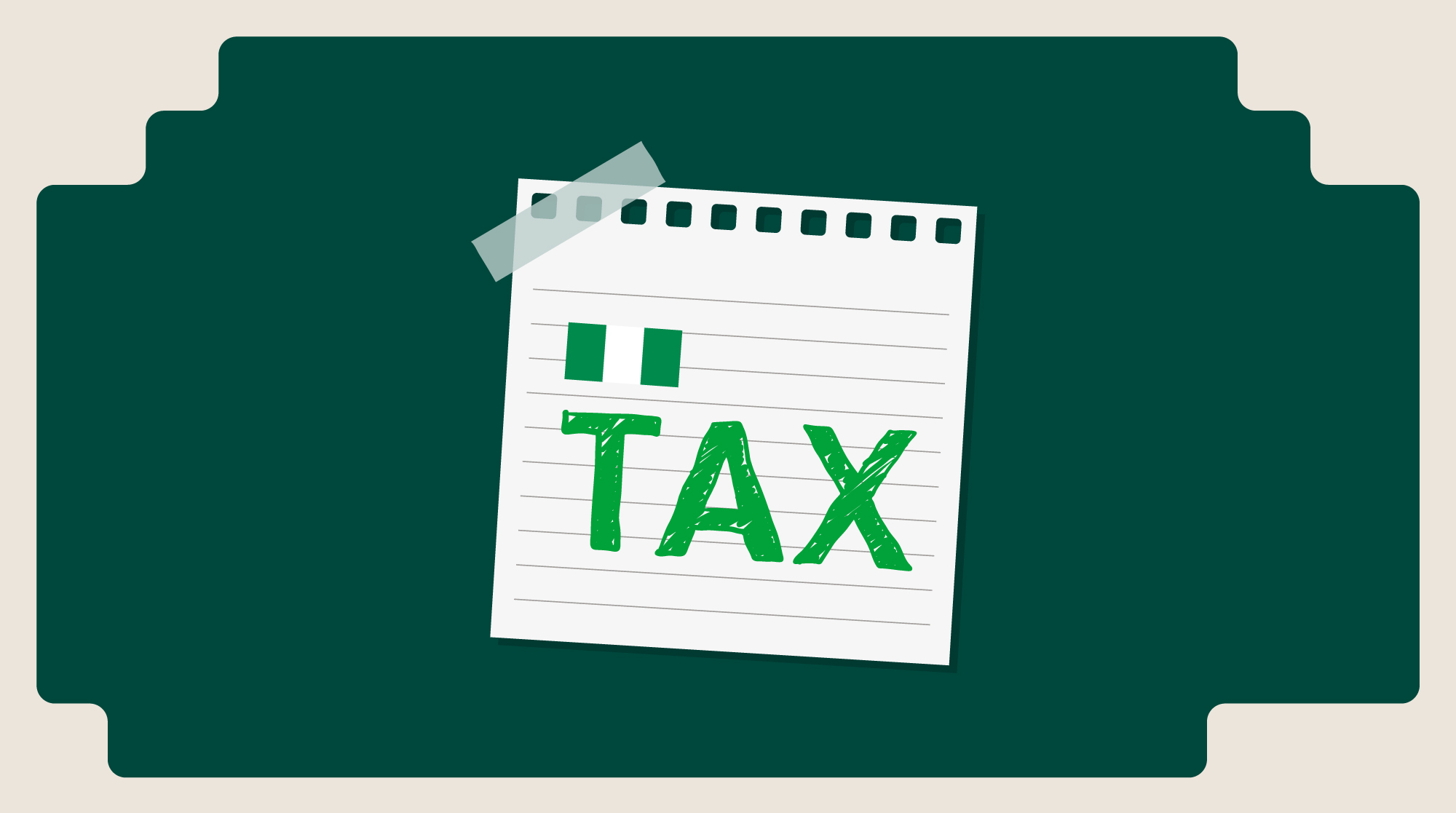Nigeria’s tax system is a multifaceted landscape, playing a pivotal role in the country’s economic development and sustenance. Understanding the various types of taxes imposed is crucial for individuals and businesses alike.
This comprehensive guide aims to navigate through Nigeria’s tax terrain, shedding light on different tax categories, their implications, and the significance of compliance.
From direct taxes encompassing personal and corporate income taxes to indirect levies like Value Added Tax (VAT) and other distinct taxes such as Capital Gains Tax and Stamp Duties, this exploration aims to demystify the complexities of Nigeria’s tax structure.
Delving into these aspects not only illuminates the obligations but also emphasizes the importance of tax understanding in contributing to the nation’s fiscal growth.
Overview of Nigeria’s Tax System
Nigeria’s tax system serves as a cornerstone of the nation’s fiscal policy, providing vital revenue for economic development, infrastructure, and public services. The tax framework in Nigeria comprises a diverse array of levies imposed by different tiers of government, including federal, state, and local authorities.
This system encompasses various types of taxes, each serving specific purposes and contributing to the country’s revenue stream. Understanding the nuances of these taxes is essential for both individuals and businesses to fulfill their obligations and navigate the intricate tax landscape effectively.
Importance of Taxes in Nigeria
Taxes play a pivotal role in Nigeria’s socioeconomic growth, funding critical sectors such as education, healthcare, infrastructure development, and social welfare programs. The revenue generated from taxes forms the bedrock of government expenditure, enabling the provision of essential public services and the implementation of developmental projects across the country.
Furthermore, an efficient and equitable tax system fosters economic stability, attracts investments, and promotes sustainable growth by ensuring a fair distribution of the tax burden among citizens and businesses.
Direct Taxes In Nigeria
- Personal Income Tax
- Corporate Income Tax
- Capital Gains Tax
- Personal Income Tax
Personal Income Tax in Nigeria is a direct levy imposed on the income of individuals, including salary, wages, bonuses, and other forms of earnings. It applies to residents’ worldwide income and non-residents’ income derived from Nigerian sources.
Tax Rates and Thresholds
The tax rates for Personal Income Tax in Nigeria are progressive, with varying percentages based on income brackets. Thresholds and tax bands differ across states, with the Federal Capital Territory (FCT) having its specific rates.
Taxable Income Components
The taxable income includes earnings from employment, business profits, rent, dividends, interest, royalties, pensions, and other sources, with certain deductions and allowances provided for specific expenses.
Filing Procedures
Taxpayers are required to register with the relevant tax authorities, obtain a Taxpayer Identification Number (TIN), and file annual tax returns within the stipulated deadlines. Compliance involves accurate reporting of income, deductions, and payment of taxes owed.
- Corporate Income Tax
Corporate Income Tax applies to the profits of companies, partnerships, and incorporated trustees in Nigeria. It is charged on their worldwide income for resident entities and on Nigerian-sourced income for non-residents.
Tax Rates and Applicability
The standard Corporate Income Tax rate in Nigeria is 30%, although certain industries or specific activities may enjoy preferential rates or incentives based on government policies and regulations.
Tax Incentives and Exemptions
Various tax incentives and exemptions are available to promote investment, including Pioneer Status incentives, tax holidays, and allowances for specific capital expenditures or industries.
Compliance Requirements
Entities subject to Corporate Income Tax must register with the Federal Inland Revenue Service (FIRS), obtain a Tax Identification Number (TIN), and fulfill annual tax filing obligations, including audited financial statements.
- Capital Gains Tax
Capital Gains Tax applies to gains arising from the disposal of assets, including land, buildings, shares, and other forms of property, and is chargeable at a flat rate.
Applicable Assets and Rates
Different rates apply to various assets, with exemptions for gains from certain assets like government securities or corporate bonds held for specific periods.
Exemptions and Allowances
Certain transactions and categories of taxpayers may be eligible for exemptions or allowances, subject to conditions specified in the tax laws.
Reporting and Compliance
Taxpayers liable for Capital Gains Tax must declare gains, compute the tax payable, and file returns with the relevant tax authorities within stipulated timelines, ensuring adherence to reporting requirements.
Indirect Taxes In Nigeria
- Value Added Tax (VAT)
- Customs and Excise Duties
- Value Added Tax (VAT)
Value Added Tax (VAT) is a consumption tax levied on the value added at each stage of the production and distribution chain. It is intended to capture consumption and is borne by the final consumer.
VAT Rates and Applicability
The standard VAT rate in Nigeria is 7.5%, with certain goods and services exempted or zero-rated. VAT is applicable to goods and services, except for those specifically exempted by law.
VAT Exemptions and Zero-Rated Items
Some goods and services, such as basic food items, medical supplies, exports, and agricultural equipment, are exempted or zero-rated from VAT to reduce the tax burden on essential items.
VAT Administration and Compliance
Businesses meeting the threshold for VAT registration must obtain a Taxpayer Identification Number (TIN), charge VAT on taxable supplies, maintain adequate records, file returns, and remit collected VAT to the relevant tax authority.
- Customs and Excise Duties
Customs Duties are tariffs imposed on goods imported into Nigeria, varying based on the classification and valuation of the imported items.
Excise Duties: Definition and Types
Excise Duties are levied on specific goods produced within Nigeria, such as alcoholic beverages, tobacco products, and luxury items, to control consumption and generate revenue.
Rates and Calculations
Customs and Excise Duties are calculated based on the value of goods, applying specific rates and additional charges where applicable.
Compliance and Reporting Procedures
Importers and manufacturers subject to Customs and Excise Duties must comply with importation regulations, accurately declare goods, pay duties, and maintain detailed records for auditing purposes.
Other Taxes
- Stamp Duties
- Education Tax
- Stamp Duties
Stamp Duties are levied on various instruments, including legal documents, agreements, and transactions, and are charged to legalize or authenticate these documents.
Types of Documents Subject to Stamp Duties
Documents subject to Stamp Duties include land transactions, share transfers, loan agreements, tenancy agreements, and other legal instruments.
Rates and Exemptions
Stamp Duty rates vary depending on the type and value of the document. Certain categories, such as transfers between family members or government transactions, might be exempt from stamp duty.
Stamp Duties Administration
The administration of Stamp Duties involves stamping documents to make them legally admissible, and it’s primarily overseen by the Federal Inland Revenue Service (FIRS).
- Education Tax
Education Tax is imposed on the assessable profits of companies registered in Nigeria, with the revenue allocated to fund education and facilitate educational development in the country.
Taxable Entities and Rates
Companies subject to Education Tax pay 2% of their assessable profits into the Education Tax Fund, which supports educational infrastructure, research, and development.
Utilization of Education Tax Funds
The funds collected from Education Tax are channeled into various educational programs, infrastructure projects, and initiatives aimed at enhancing the quality of education in Nigeria.
Compliance and Reporting Obligations
Companies liable for Education Tax must compute their assessable profits, calculate the tax due, file accurate returns, and remit the tax to the designated authority within stipulated timeframes.
Taxes In Nigeria: Frequently Asked Questions (FAQs)
- What are the common misconceptions about taxes in Nigeria?
Taxes in Nigeria often come with various misconceptions, such as the belief that taxes are solely a government burden without tangible benefits. Some individuals may also misunderstand tax rates and thresholds, assuming they apply uniformly across all states without considering regional variations. Additionally, misconceptions about tax compliance requirements, exemptions, and the impact of taxes on businesses prevail among taxpayers.
- How does the tax system in Nigeria impact businesses?
The Nigerian tax system significantly influences businesses in various ways. For instance, tax obligations affect operational costs, cash flow, investment decisions, and profitability. The availability of tax incentives, exemptions, and compliance procedures also directly impact businesses’ bottom lines, influencing their growth, competitiveness, and ability to attract investments.
- What are the penalties for non-compliance with tax regulations?
Non-compliance with tax regulations in Nigeria can lead to penalties, including fines, interest charges on unpaid taxes, and prosecution for severe cases of tax evasion. Late filing or payment of taxes may attract penalties, and repeated non-compliance can result in sanctions or legal actions by tax authorities.
- How can individuals and businesses optimize their tax payments in Nigeria?
Tax optimization in Nigeria involves understanding applicable deductions, allowances, and incentives available within the legal framework. Individuals and businesses can optimize their tax payments by engaging in legitimate tax planning, complying with tax laws, keeping accurate records, and leveraging available tax reliefs or incentives to minimize their tax liabilities.
- Are there any proposed changes or reforms in Nigeria’s tax system?
Nigeria periodically reviews its tax laws to enhance effectiveness, fairness, and economic growth. Proposed changes or reforms may include amendments to tax rates, expansion of tax base, introduction of new tax incentives, or improvements in tax administration and compliance processes. Staying updated with potential changes is essential for taxpayers to adapt and comply with evolving regulations.
Recap of Key Points
Throughout this comprehensive guide, we’ve explored the diverse landscape of taxes in Nigeria, encompassing various direct and indirect tax types. From Personal Income Tax and Corporate Income Tax to Value Added Tax (VAT), Capital Gains Tax, Stamp Duties, and Education Tax, each tax category serves distinct purposes and obligations within the country’s fiscal framework.
Importance of Understanding Nigeria’s Tax System
Understanding Nigeria’s tax system is crucial for individuals, businesses, and the nation’s overall economic development. Taxes play an integral role in funding public services, infrastructure development, and social welfare programs, thereby contributing significantly to national growth and sustainability.
Future Outlook and Potential Changes
As Nigeria continues its efforts to strengthen its fiscal policies and enhance revenue generation, potential changes or reforms in the tax system may emerge. It’s essential for taxpayers to remain informed and adapt to evolving regulations, ensuring compliance and optimizing tax obligations.
In conclusion, grasping the nuances of Nigeria’s tax structure empowers individuals and businesses to navigate the tax landscape effectively, fulfill their obligations, and contribute to the country’s progress. By fostering tax literacy and adherence, we collectively support a robust and equitable fiscal environment beneficial for all stakeholders.




